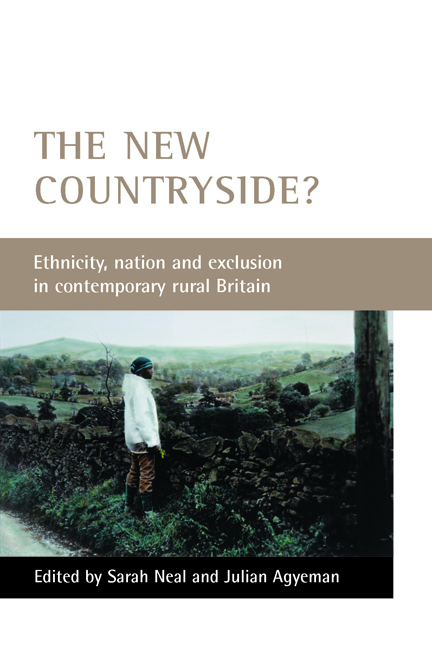three - ‘Let's keep our heads down and maybe the problem will go away’: experiences of rural minority ethnic households in Scotland
Published online by Cambridge University Press: 18 January 2022
Summary
Introduction
Since the publication of Jay's report (1992) Keep them in Birmingham and Fife Regional Council's report in Scotland (1991) Race equality in Fife and the plethora of reports that have followed, it has at times appeared a long and difficult process to persuade rural agencies and communities to acknowledge, let alone address, racism and racial discrimination. Despite growing evidence of rural minority ethnic households being more vulnerable to racism than their urban counterparts (Rayner, 2001) and calls from a range of agencies and individuals to develop a more strategic approach to addressing rural racism issues (Scottish Council for Voluntary Organisations (SCVO), 1994; Henderson and Kaur, 1999; National Council for Voluntary Organisations (NCVO), 2000), the response by national and local agencies has tended to be slow. Consequently, rural areas have been left behind to catch up with urban areas, given the predominant urban-centred emphasis of research and investment of resources.
The focus of this chapter is on racism and racial discrimination in rural areas of Scotland with a particular emphasis on the Highlands and Islands, and draws on a range of published and unpublished research undertaken by the author between 1999 and 2004. While it is important to acknowledge that the issue of racism in Scotland is highly complex, manifested by the prevalence of prejudice against the English and ‘incomers’ (Jedrej and Nuttall, 1996; McIntosh et al, 2004) and the persistence of sectarianism, it is important to state at the outset that this chapter is not in a position to address these issues. Having set the context, where the changes in discourses and policies from pre-devolutionary (before 1999) to post-devolutionary Scotland will be discussed (see Scottish Executive, 2003, for information on Scottish devolution), the chapter will:
• Provide a brief analysis of Scotland's minority ethnic groups, particularly focusing on the Highlands and Islands (Orkney, Shetland and the Western Isles) of Scotland.
• Summarise research findings on the experiences of rural minority ethnic households/dwellers, identifying gaps as well as examples of practical initiatives to address issues of racist discrimination and harassment.
• Conclude by highlighting some methodological issues that emerge from researching rural minority ethnic households as well as providing an overview of an agenda that requires to be addressed in rural Scotland.
- Type
- Chapter
- Information
- The New Countryside?Ethnicity, Nation and Exclusion in Contemporary Rural Britain, pp. 73 - 98Publisher: Bristol University PressPrint publication year: 2006



